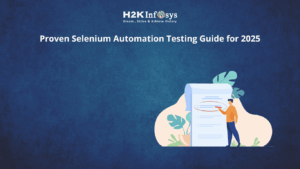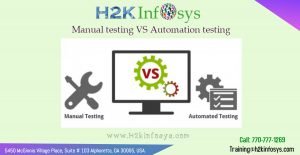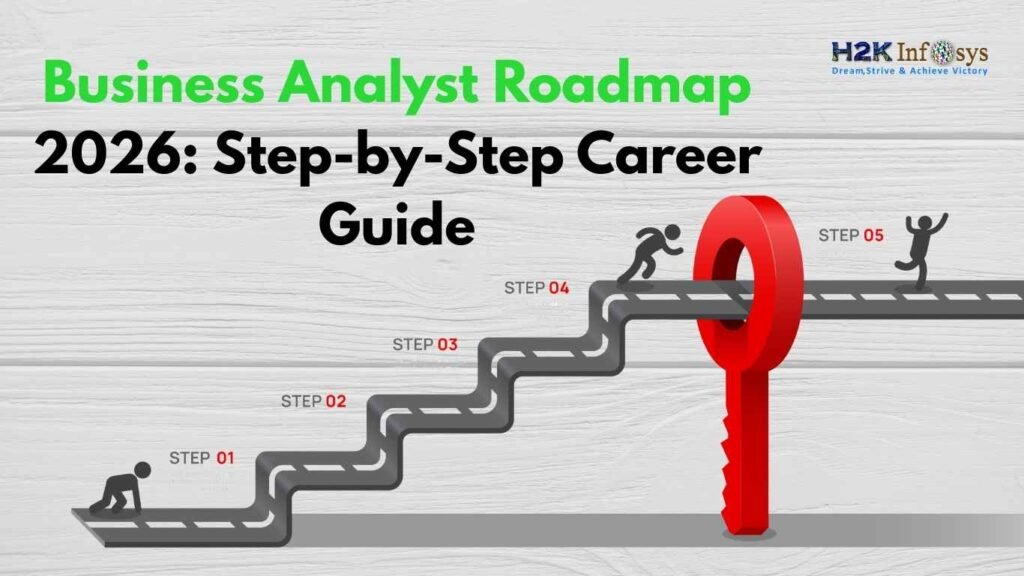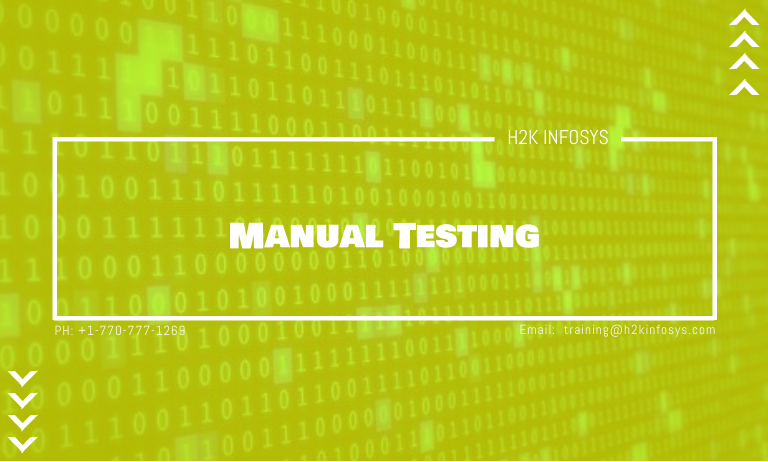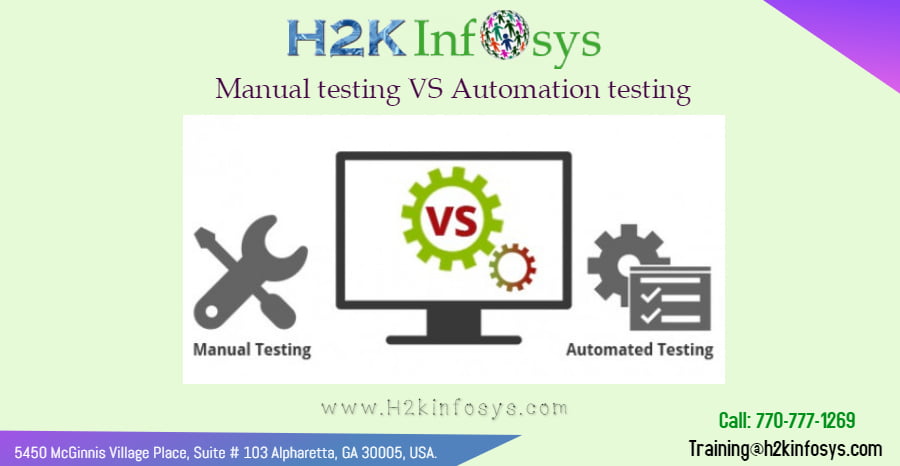The New Era of Smart Testing
Regression testing has always been one of the most time-consuming tasks in the software development cycle. Every time a new feature is added, testers must ensure that existing functionalities remain intact. Traditional regression testing often involves repetitive test cases, long execution cycles, and high maintenance efforts. But what if we could make regression testing smarter?
That’s where AI-powered regression testing with Selenium is transforming the game. By integrating Artificial Intelligence with Selenium software testing, QA teams can now automate repetitive tasks, detect code changes faster, and predict test failures before they happen. The result? Smarter, faster, and more accurate testing cycles.

If you’re aiming to advance your career in automation testing, mastering Smarter Regression Testing with Selenium and AI is your next big move.
What Is Regression Testing and Why It Matters
Before diving into AI-driven approaches, let’s first understand the importance of regression testing.
Regression testing ensures that a software application continues to perform correctly after any code modifications. These changes could be bug fixes, new features, or configuration updates.
Why Regression Testing Is Crucial
- Prevents new bugs: Ensures new code changes don’t break existing functionalities.
- Improves software quality: Helps maintain a stable and reliable application.
- Supports continuous integration: Fits perfectly within agile and DevOps workflows.
- Reduces risk: Detects potential issues early before deployment.
However, traditional regression testing faces significant challenges manual test maintenance, large test suites, and time delays. This is where AI and Selenium together make regression testing smarter.
The Limitations of Traditional Regression Testing
Even though automation with Selenium has made regression testing faster, many teams still struggle with inefficiencies:
- High Maintenance Effort: Frequent UI or code changes cause test scripts to break.
- Slow Execution: Large test suites take hours or even days to run.
- Redundant Tests: Test cases often overlap, wasting execution time.
- Human Dependency: Manual validation and prioritization slow down CI/CD cycles.
Traditional automation tools lack intelligence they simply follow scripts. When an element changes in the DOM or a new feature affects the workflow, scripts fail. To overcome these challenges, AI brings predictive intelligence and self-healing capabilities into the picture.
How AI Makes Regression Testing Smarter
AI is reshaping the way QA teams perform regression testing. By combining AI algorithms with Selenium automation, testers can optimize their test suites, detect anomalies automatically, and even predict which tests to run after each code change.

Let’s look at the key ways AI enhances regression testing:
a. Test Case Prioritization
AI uses data from previous test runs to identify which test cases are more likely to fail.
- It assigns risk scores to test cases based on code changes and historical patterns.
- This helps teams run high-impact tests first, saving time during regression cycles.
b. Self-Healing Test Scripts
AI-powered tools like Testim, Mabl, or Functionize detect UI changes automatically.
When an element changes, AI updates the test locator dynamically eliminating script maintenance.
This means fewer test failures and faster releases.
c. Defect Prediction
Machine learning models analyze commit history and test outcomes to predict where future bugs might occur.
This allows QA teams to focus testing efforts on the most vulnerable areas.
d. Smart Test Selection
Instead of running the entire suite, AI helps identify only the relevant tests affected by code changes.
This leads to smarter regression testing faster execution and reduced infrastructure costs.
e. Visual Validation with AI
Tools like Applitools Eyes use visual AI to detect UI changes that traditional Selenium tests can’t catch.
This ensures a pixel-perfect user interface across browsers and devices.
Why Selenium Testing Is the Backbone of AI-Powered Regression
Selenium remains one of the most powerful open-source automation tools for web testing. It integrates seamlessly with AI platforms and supports all major browsers and programming languages.
Here’s why Selenium software testing is the foundation for Smarter Regression Testing:
- Open-source flexibility: Selenium allows integration with AI-powered plugins and custom frameworks.
- Cross-browser support: Ideal for ensuring consistent performance across Chrome, Firefox, Edge, and Safari.
- Parallel execution: With tools like Selenium Grid and cloud platforms, you can run multiple regression tests at once.
- Integration with CI/CD tools: Works easily with Jenkins, GitLab, and CircleCI for continuous testing.
When you combine Selenium’s automation strength with AI’s intelligence, regression testing becomes more predictive and less reactive.
Real-World Example: AI + Selenium in Regression Testing
Let’s consider a practical scenario from a retail e-commerce platform.
Every week, developers push new features discount banners, login improvements, and shopping cart updates. Previously, running the entire regression suite took 12 hours.
After implementing AI-powered Selenium regression testing, the results changed dramatically:
- AI prioritized only 35% of test cases that were impacted by the new code.
- Execution time dropped from 12 hours to 3 hours.
- Self-healing locators reduced test maintenance by 70%.
- Visual AI tools detected 5 UI alignment bugs that were missed earlier.
This case study clearly shows how AI brings smarter regression testing into action faster feedback, higher test accuracy, and improved software reliability.
Tools and Frameworks for AI-Driven Selenium Regression Testing
There are several tools in the market that bring AI capabilities to Selenium regression testing. Here are some of the most popular:
| Tool | AI Features | Integration with Selenium |
|---|---|---|
| Applitools Eyes | Visual AI for UI regression testing | Works with Selenium WebDriver |
| Testim.io | Self-healing scripts and test generation | Built on Selenium APIs |
| Mabl | Auto-maintenance and visual validation | Integrates with Selenium scripts |
| Functionize | Natural language test creation | Supports Selenium commands |
| TestSigma | AI-driven test automation | Cloud-based and Selenium-compatible |
Each of these tools uses AI to make Selenium regression testing faster and more reliable.
How to Implement Smarter Regression Testing with AI and Selenium
If you’re already using Selenium software testing, you can integrate AI without overhauling your existing setup.
Here’s a step-by-step approach to get started:
Step 1: Analyze Your Current Test Suite
- Identify redundant, flaky, or outdated test cases.
- Use analytics tools to measure failure trends.
Step 2: Integrate AI-Powered Tools
- Choose an AI tool that complements Selenium (e.g., Applitools, Testim).
- Set up integration with your existing framework.
Step 3: Apply Test Case Prioritization
- Configure AI to analyze commit history and run high-risk tests first.
- Use change impact analysis to optimize test selection.
Step 4: Enable Self-Healing Tests
- Replace static locators (XPath, ID) with AI-driven element locators.
- Allow the tool to automatically adapt to UI or DOM changes.
Step 5: Monitor and Refine
- Continuously review AI recommendations.
- Use insights to improve regression coverage and accuracy.
By following these steps, QA engineers can perform smarter regression testing reducing execution time while maintaining high reliability.
Benefits of Smarter Regression Testing
Integrating AI with Selenium software testing offers multiple advantages that make it indispensable for modern QA teams.
Key Benefits:
- Reduced Execution Time: Run only essential tests based on code impact.
- Lower Maintenance Costs: Self-healing tests reduce manual updates.
- Improved Accuracy: AI detects anomalies missed by traditional automation.
- Better Risk Management: Predictive analytics highlight critical areas early.
- Continuous Improvement: Machine learning enhances test quality over time.
In short, AI turns regression testing from a reactive process into a proactive, intelligent system.
Skills You Need to Master Smarter Regression Testing
To leverage AI in Selenium, you need a blend of automation and analytical skills.
Here’s what QA professionals should focus on:
- Strong foundation in Selenium WebDriver.
- Understanding of AI concepts like machine learning, pattern recognition, and predictive modeling.
- Knowledge of Python or Java for writing test scripts.
- Familiarity with CI/CD pipelines using Jenkins or GitHub Actions.
- Experience with AI-driven testing tools like TestSigma or Applitools.
At H2K Infosys, our Selenium certification course covers these essential skills through hands-on training and real-world projects.
Future of Regression Testing with AI and Selenium

The future of regression testing is driven by AI automation, cloud scalability, and predictive analytics.
We’re moving toward an era where:
- Tests adapt themselves dynamically.
- AI predicts which modules need more testing.
- QA engineers focus on strategy instead of repetitive validation.
According to a Gartner report, by 2026, AI-powered test automation will reduce regression testing efforts by over 40% in agile organizations.
This means the future belongs to professionals who master Smarter Regression Testing with AI and Selenium.
Challenges in AI-Powered Regression Testing
While the benefits are significant, there are also challenges to overcome:
- Tool integration issues: Not all AI tools work seamlessly with every Selenium setup.
- Learning curve: Teams need time to understand AI-driven workflows.
- Data dependency: AI accuracy depends on the quality of historical test data.
- Initial cost: Setting up AI systems requires an upfront investment.
With proper training and guidance, these challenges can be minimized. H2K Infosys provides structured learning to help you adopt AI in testing efficiently.
Best Practices for Smarter Regression Testing
Follow these proven practices to get the most from AI and Selenium:
- Start small — Begin with one module before scaling.
- Use analytics — Continuously analyze test results to train AI better.
- Combine manual and AI tests — Keep a balance for better validation.
- Keep your Selenium scripts modular — Easier for AI systems to process.
- Automate reporting — Use dashboards to visualize regression trends.
Implementing these practices will make your automation process smarter, scalable, and efficient.
Case Study: Banking App Regression Testing
A major financial institution used AI and Selenium for its online banking portal.
Challenges included frequent UI updates and high test maintenance.
Results After AI Integration:
- Regression suite reduced from 1,200 to 600 test cases.
- Test execution time dropped from 8 hours to 2 hours.
- Accuracy improved by 95%.
- Visual AI detected minor layout issues before release.
This real-world example highlights the impact of Smarter Regression Testing using AI and Selenium.
Conclusion
AI isn’t replacing testers it’s empowering them. By merging AI-driven intelligence with Selenium software testing, regression testing becomes faster, smarter, and more accurate.
Whether you’re a beginner or an experienced QA professional, learning Smarter Regression Testing can give your career a strong competitive edge.
Enroll in H2K Infosys’ Selenium certification course today and gain hands-on experience in AI-powered testing to future-proof your testing career.
Key Takeaways
- AI transforms regression testing from manual to intelligent automation.
- Selenium provides a robust foundation for implementing AI-based testing.
- Smarter Regression Testing saves time, cost, and improves quality.
- H2K Infosys helps you learn, practice, and master AI-integrated Selenium testing






